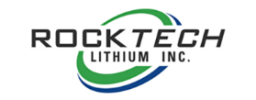Vancouver, BC, Canada – TheNewswire – November 12, 2020 – Rock Tech Lithium Inc. (the "Company" or "Rock Tech") (TSXV:RCK) (OTC:RCKTF) (Frankfurt:RJIB) is pleased to announce that it has lodged a patent application with the European Patent Office for a new and innovative lithium hydroxide manufacturing process.
The so-called Nitrate Process has been developed in cooperation with Prof. Dr. em. Wolfgang Voigt from TU Bergakademie Freiberg / Germany and aims to replace the Sulphate Process which is currently used in most operating lithium converters worldwide.
In comparison to the Sulphate Process, the Nitrate Process presents two key advantages:
-
– The crystallization step of lithium hydroxide in the Nitrate Process does not require temperatures around negative 10 degrees Celsius. Instead it is carried out at higher temperatures, resulting in substantial energy savings potential.
– Gypsum and nitrate compounds are produced as by-products which are expected to generate higher value revenue streams than the Sodium Sulphate by-product from the Sulphate Process.
Rock Tech has successfully produced battery-grade lithium hydroxide on a lab-scale basis and intends to prove the industrial scalability and economic benefits of its proprietary flowsheet as part of the upcoming converter pre-feasibility study targeted for completion in mid-2021.
The by-products from the lithium conversion can have a significant impact on the overall cost of production for lithium hydroxide.
The Company considers the price outlook for Sodium Sulphate to be negative. Increasing by-product production from conventional lithium hydroxide converters will hit a shrinking market as the main consumers, like the detergents and wood pulp industry, are switching to substitutes. There is an increasing risk that the market will not be able to absorb all the Sodium Sulphate produced. In that case, substantial disposal costs will be foisted upon lithium producers as Sodium Sulphate cannot be stored in standard disposal facilities due to its high solubility in water.
Nitrate compounds, on the other hand, are very sought-after fertilizer compounds and the supply of gypsum is set to drastically decrease (particularly in Germany) over the next two decades due to the scheduled phase-out of lignite-fired power plants.
The patent application was lodged with the European Patent Office, meaning that – if granted in all designated states – the patent would be applicable within the EU countries, Turkey, and Switzerland for 20 years. Within the usual 12 months priority period Rock Tech can decide on whether an international patent application is filed.
"We are very excited about this patent application since it shows that Rock Tech is very dedicated to becoming a lithium technology company. It is a testimony of our team’s capabilities and we will continue to grow it over the coming months. It is very clear that continuous innovation will be key for bringing down costs for lithium chemicals and consequently EV’s whilst maintaining healthy margins," said Simon Bodensteiner, the Company’s Chief Executive Officer.
On behalf of the Board of Directors,
"Simon Bodensteiner"
Simon Bodensteiner
Director, Chief Executive Officer
For further information, please contact:
Brad Barnett
Chief Financial Officer
Rock Tech Lithium Inc.
777 Hornby Street, Suite 600
Vancouver, B.C., V6Z 1S4
Telephone: (778) 358-5200
Facsimile: (604) 670-0033
Email: [email protected]
Neither TSX Venture Exchange nor its Regulation Services Provider (as that term is defined in the policies of the TSX Venture Exchange) accepts responsibility for the adequacy or accuracy of this release.
Statements included in this announcement, including statements concerning our plans, intentions and expectations, which are not historical in nature are intended to be, and are hereby identified as, "forward–looking statements". Forward–looking statements may be identified by words including "anticipates", "believes", "intends", "estimates", "expects" and similar expressions. The Company cautions readers that forward–looking statements, including without limitation those relating to the Company’s future operations and business prospects, are subject to certain risks and uncertainties that could cause actual results to differ materially from those indicated in the forward–looking statements.
Copyright (c) 2020 TheNewswire – All rights reserved.





